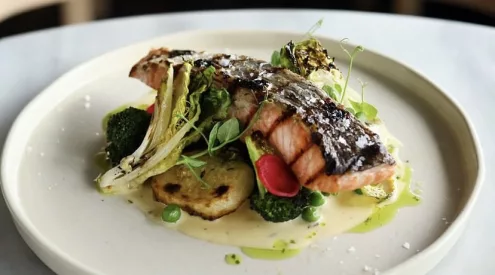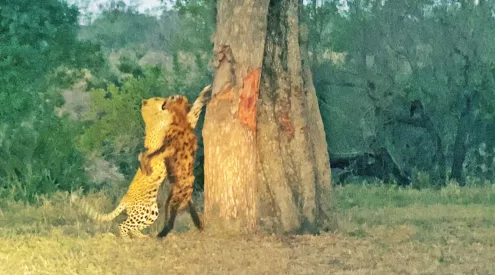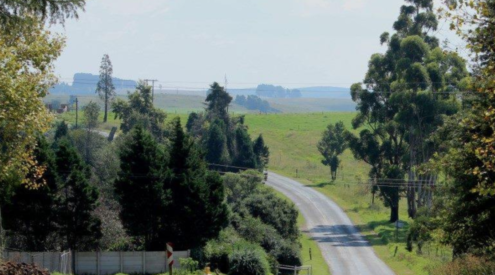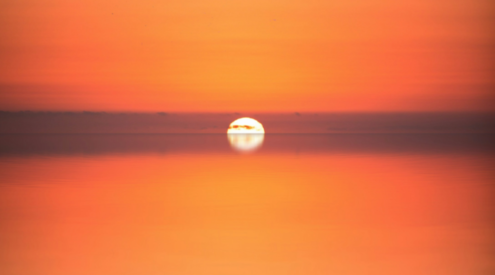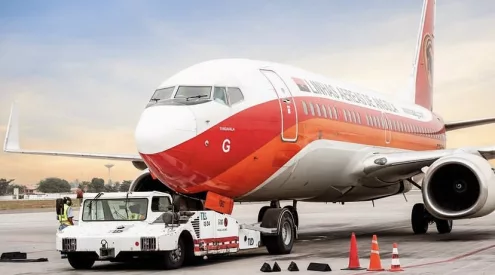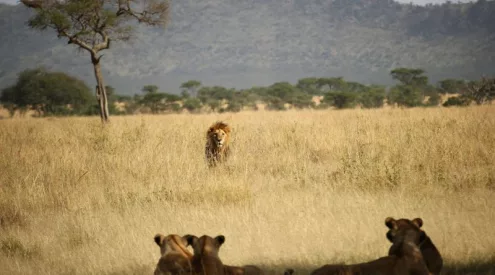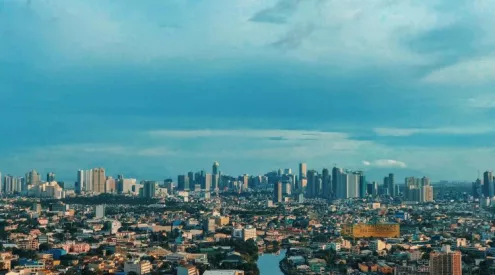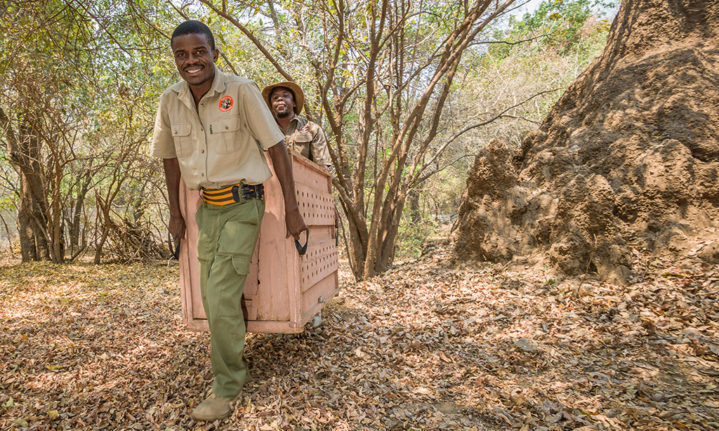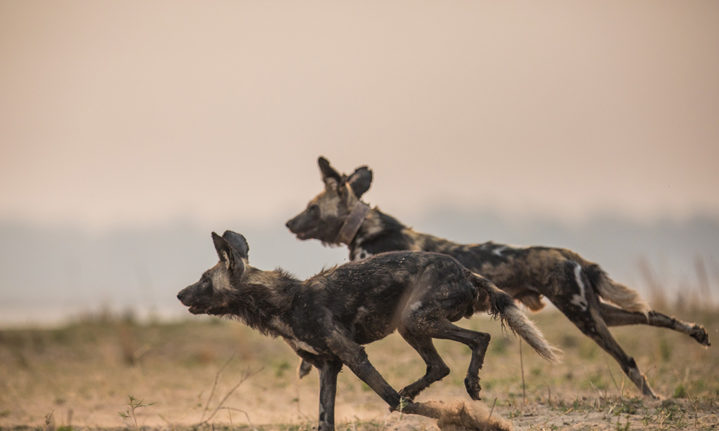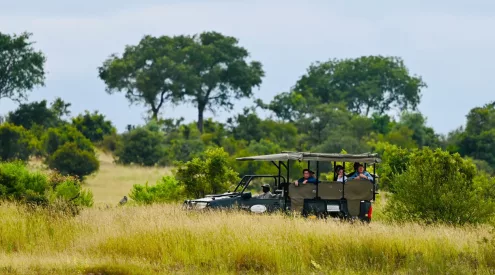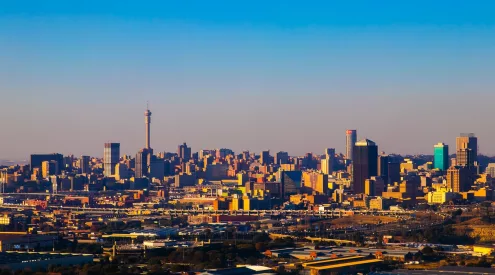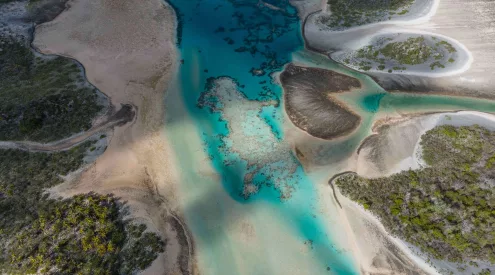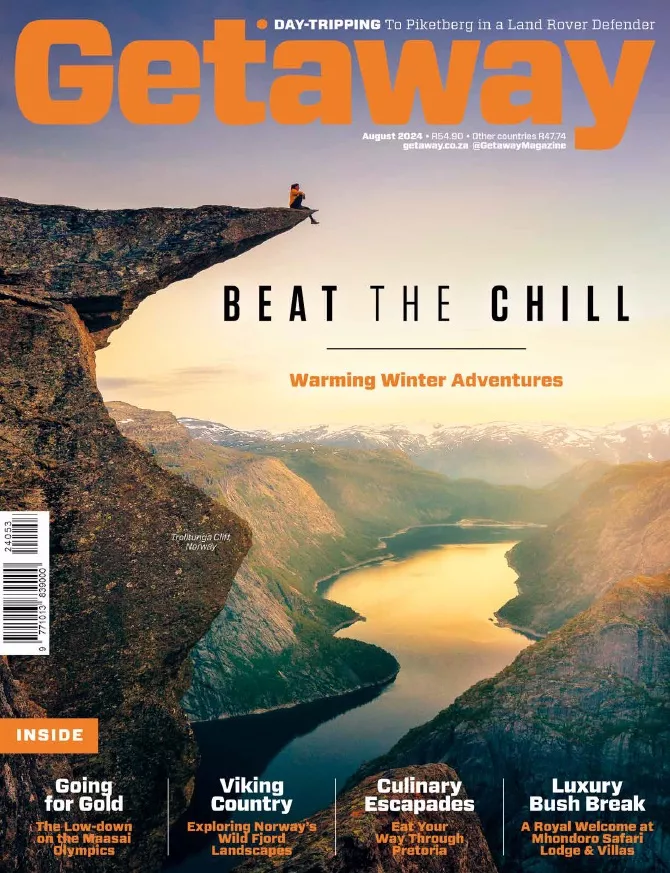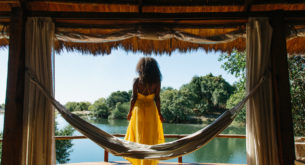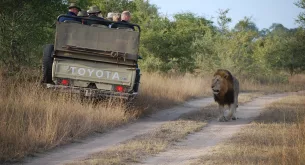A crate marked ‘Painted Dog Conservation’ in stencilled letters slid open. Snowtail, the alpha female, charged out. Two more crates opened. The alpha male and a yearling pup joined their queen.
Peter Blinston, director of Painted Dog Conservation, coaxed out six puppies from other crates, still drowsy after the flight from Hwange National Park.

Wild-dog researcher Thomas Mutonhori and Anesu Gotora unload crates at Chikwenya. Image credit: Morgan Trimble
Reunited, the pack explored the large enclosure behind Chikwenya Camp in Mana Pools, and I watched in awe. Here, the dogs will dine daily on goat carcasses. They’ll splash in a pool and snooze under shady trees. A wire fence and buffalo-thorn boma will protect them from rival lions and hyenas.
The Mpindo Pack earned this unusual trip with Wilderness Safaris due to bad behaviour back home. They’d made a habit of eating goats at Mpindo village neighbouring Hwange. In 2018, Painted Dog Conservation captured and released them deep within the park. But they navigated 80 kilometres back to the village. ‘I don’t know how they do it,’ said Peter. ‘They’re sort of like homing pigeons, with built-in GPS.’
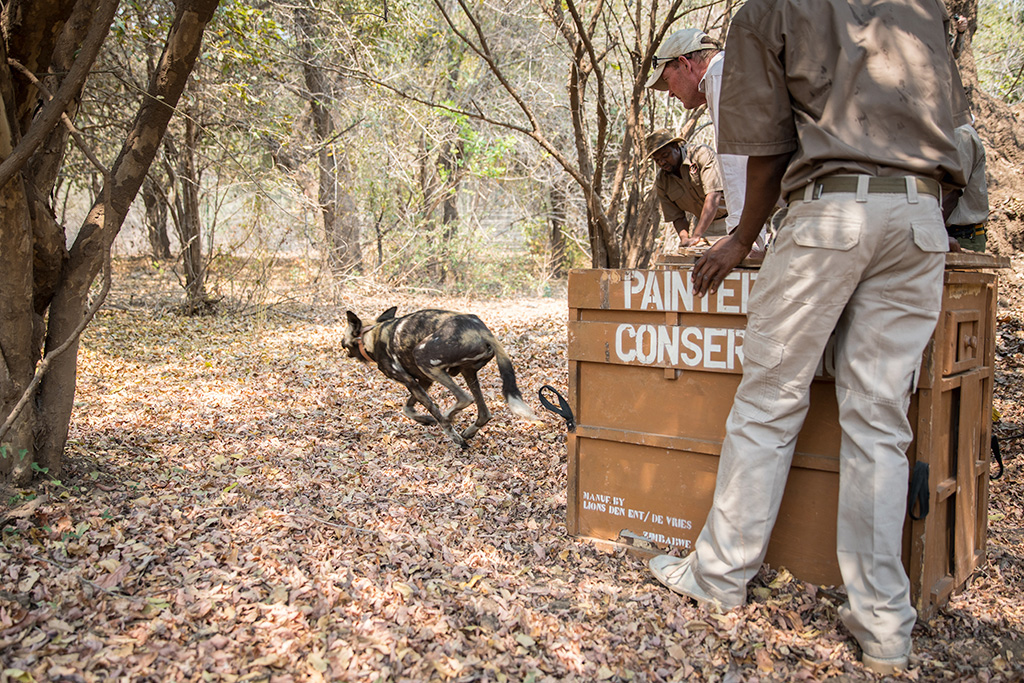
Peter Blinston releases alpha-male Jonathan into the boma. Image credit: Morgan Trimble
The community was remarkably tolerant, perhaps as a result of his organisation’s outreach programmes. They protected the pack through the breeding season, despite some livestock losses, so Peter’s team could capture the adults and retrieve the new pups from their den.
Zimbabwe is home to 10 per cent of the world’s 7 ,000 remaining wild dogs, split between Hwange, Gonarezhou and the Mid-Zambezi Valley surrounding Mana Pools. Among the most wide-roaming carnivores, wild dogs are difficult to conserve in Africa’s shrinking wild places where they frequently conflict with people. The Mid-Zambezi population has shrunk over the past decade. Even without human threats, wild dog numbers can swing dramatically.
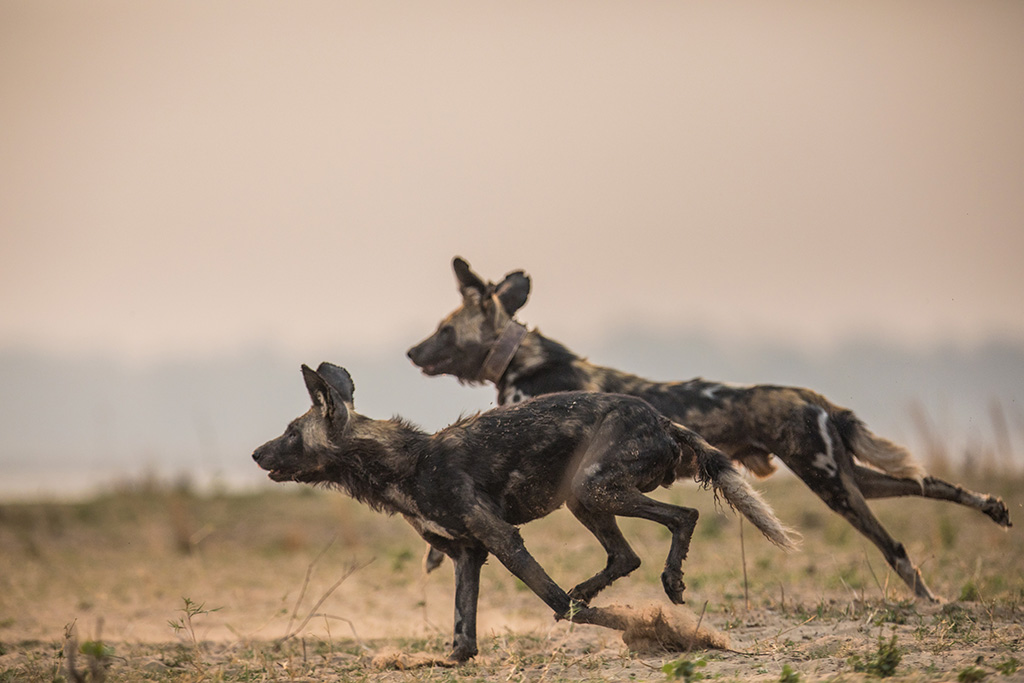
Radio collars were fitted to all the dogs to monitor pack dynamics. Image credit: Morgan Trimble
The thriving Mana Pools packs that starred in David Attenborough’s Dynasties are now struggling. ‘At one point, Blacktip and Tait’s packs had 60 dogs between them,’ said Peter. But following Blacktip’s death, masters student Thomas Mutonhori watched her pack drop to a low of 10. When Tait died, her daughter Tammy took over. She had four litters, but not a single pup survived.
‘Tammy wasn’t a good mother,’ said Thomas of the alpha who left the den too early. ‘As a conservationist, it hurts, but for my study it’s interesting.’ Tammy recently died, leaving just six dogs in her pack, all sibling descendants of Blacktip.
On the positive side, this dip provided an opportunity to rehome the Hwange troublemakers in livestock-free habitat. ‘It’s good for tourism, good for the dogs, good for conservation and good for Zimbabwe,’ said Wilderness Safaris’ Courteney Johnson.

The remnants of the Mana Pools pack visited the newcomers in between hunts on the Zambezi floodplain. Image credit Morgan Trimble
Head keeper Shepherd Phiri moved with the dogs from Hwange. A six-month stay in the boma will help the pack bond to the area and stick around after they’re released in April. During their stay, Shepherd will check on them every 30 minutes – thousands of visits.
‘I’m just in love with it,’ he said. ‘If you have a real passion for the dogs, each and every time is more fascinating. It’s interesting to study their behaviour and see what they’re doing.’
The remnants of Tammy’s pack quickly discovered the newcomers at the boma. Their vocalisations evolved from aggressive to friendly, so perhaps the packs will join. ‘But a lot could happen between now and April in terms of local dynamics,’ said Peter. When Chikwenya reopens after the rains (in April),
lucky tourists will get to watch the Mpindo dogs trot out into their future.
painteddog.org, wilderness-safaris.com
Text: Morgan Trimble

